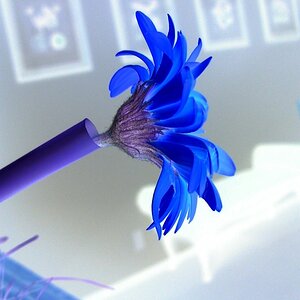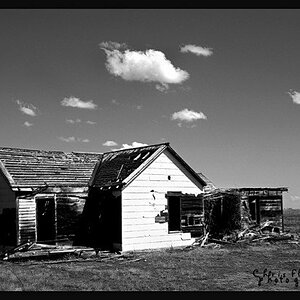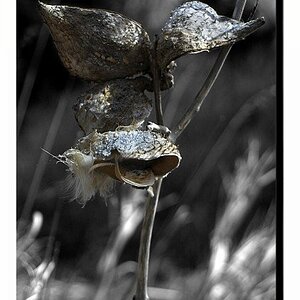Christobol
TPF Noob!
- Joined
- Jun 13, 2016
- Messages
- 9
- Reaction score
- 0
- Can others edit my Photos
- Photos OK to edit
Hi everyone, after lurking for a few weeks I thought I should introduce myself (and seeing that the point system has some purpose). I've always been interested in great photos, but have only rarely shoot anything good with point and shoot, or camera phone, or even DSLR. Granted I grabbed one of my parents DSLRs and shot in auto, and didn't really consider the shot at all. Since both of my parents have been at least mildly interested in photography since before I was born and have in fits and spurts updated their cameras I asked if I could have their oldest DSLR to see if it's something I'd enjoy pursuing. After a few weeks of using their Canon D30 walkabout lens I liked what I was doing but found that between the very low performance in low light, extreme lag between photos (around 10 seconds) and the lack of MP, that I wasn't getting close to the pictures I wanted.
So after tons of research, advice, followup research, more advice sprinkled with a bit of ridicule and more research I found a decently priced D7000 with a 50mm f/1.8D prime lens last week. I've only taken a few hundred pictures, most of which have since been deleted because they weren't interesting or after processing in LR as they had too many technical flaws.
I'm mostly interested in landscape, object, and night scenes
Anyway I look forward to participating in this forum.
Chris Robertson
So after tons of research, advice, followup research, more advice sprinkled with a bit of ridicule and more research I found a decently priced D7000 with a 50mm f/1.8D prime lens last week. I've only taken a few hundred pictures, most of which have since been deleted because they weren't interesting or after processing in LR as they had too many technical flaws.
I'm mostly interested in landscape, object, and night scenes
Anyway I look forward to participating in this forum.
Chris Robertson


![[No title]](/data/xfmg/thumbnail/37/37110-1d5d98524f9f6a8623703161610ef439.jpg?1619737882)
![[No title]](/data/xfmg/thumbnail/37/37108-62307f01c11ef92f5655ed4501d565ce.jpg?1619737882)

![[No title]](/data/xfmg/thumbnail/35/35955-01e9c8140cdcaac10d227d68e42ac0d4.jpg?1619737267)
![[No title]](/data/xfmg/thumbnail/32/32805-61ca9a4fb87d37c0ef4f991ac1705e1f.jpg?1619735667)
![[No title]](/data/xfmg/thumbnail/40/40301-fa48a5125a6849a0a400dff1599c4b30.jpg?1619739412)

![[No title]](/data/xfmg/thumbnail/35/35953-1a8b92df0115ff7026f31b78855ac815.jpg?1619737264)

![[No title]](/data/xfmg/thumbnail/33/33437-e75ccdc53ab9428f2dd0218e568181b1.jpg?1619735969)